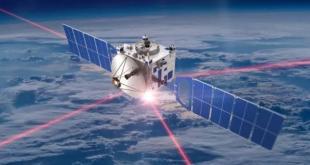by Dr. Emma Gatti
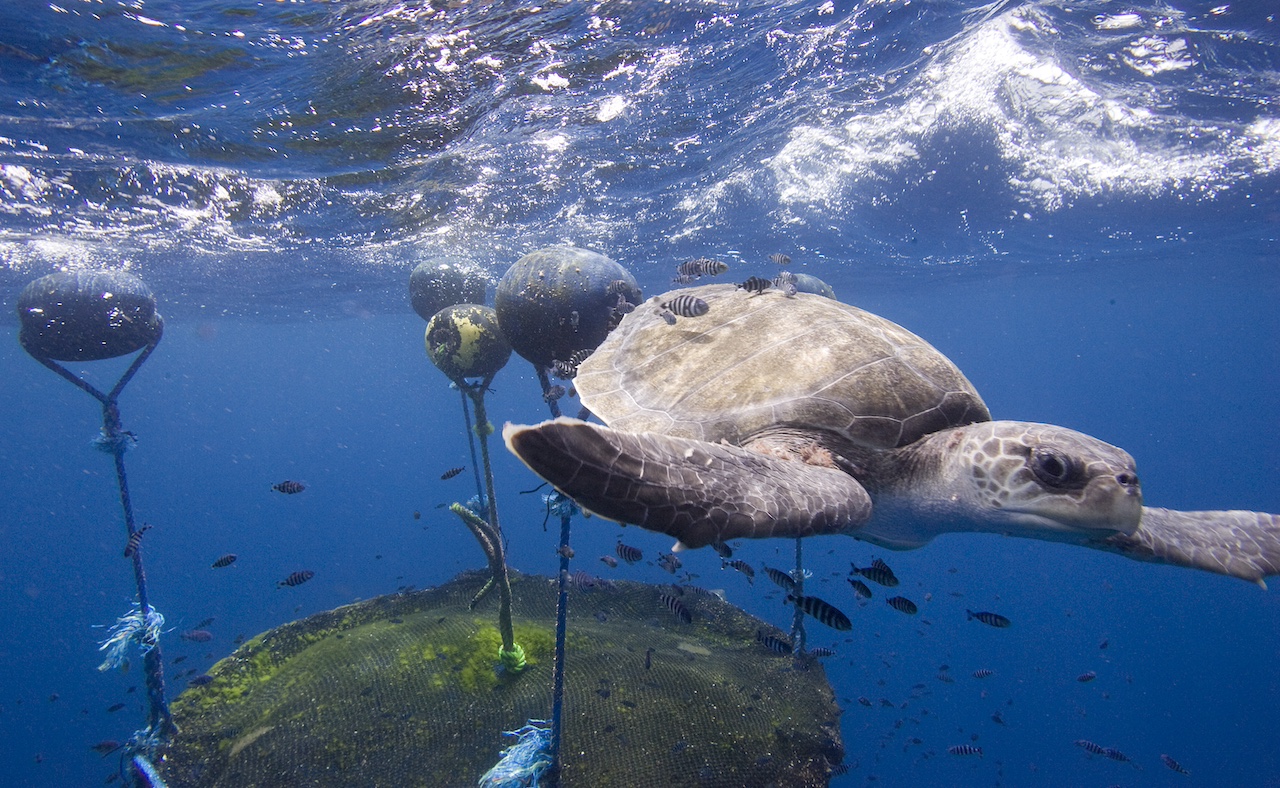
On the 26th of January 2024, 118 marine conservation and environmental organizations signed a petition asking Iridium to stop producing their Short Burst Data (SBD) modules, real-time GPS tracking devices, because such service is used in dFADs, short for drifting fish aggregating devices, fishing tools scientifically proven to be environmentally harmful. Iridium’s answer acknowledged the potential issue, but declined the criticism. Whether the responsibility lies in the hands of the satellite tracking service providers, or with wholesale satellite network operators such as Iridium, it’s the first crack in a canvas painted by a domain that refuses to accept and take action upon a bitter reality: Space-based technology is dual-use in every sense, and the extreme efficiency and power of our services can, is and will be used for crimes against the environment, if not thoroughly regulated.
Fish Aggregating Devices
A FAD is a human-made object designed to attract fish. It consists of a floating raft supporting hanging nets and/or ropes and a state-of-the-art satellite buoy that allows a fishing vessel to track the location of the FAD by GPS. FADs may be anchored, but the vast majority are drifting (dFADs). Thanks to dFADs, the world catch of tuna reached 5.2 million metric tons in 2018, more than double the amount from the early 1990s.
The concept that builders of industrial tools are not involved in or responsible for how such components are used is reminiscent of old mistakes made in the 18th century
FADs are relatively inexpensive to build, the satellite component being the most expensive part by far. As reported in Gomez et al. 2020, the floating materials cost about $120, the satellite buoy costs around $1000, and the annual fee for the satellite service is approximately $4,000 per FAD. Their cost, together with their efficiency, makes them extremely popular among fishermen. The real number of FADs used in the world oceans is effectively unknown. “dFAD’s are being deployed at sea in vast numbers” says Emilia Dyer, a Masters student from the University of Exeter, in the UK. “Most estimates predict at least 100,000 dFADs are deployed per year around the world, and, because as many as 90% are lost or abandoned, they are accumulating as entangling marine pollution in almost incomprehensible numbers and deeply impacting the entire ocean ecosystem” she concludes.
The ecological price of economic efficiency
The environmental and ecological impacts of FADs have been well documented since the early 2010s (see below for the full scientific bibliography). The devices themselves, designed to trap shoaling fish, attract a wide variety of marine species including sharks, billfish, skipjack tuna, juvenile tuna, sea turtles and whales – many of which die as a part of the overall catch. “Fish arrive from all around and travel under it” explains Alex Hofford, from Shark Guardian. “The fishing vessels deploy a huge net around it – it’s a purse seine net, several hundreds of meters deep as well as wide. As it draws tighter there are several tens of tons of fish including endangered, threatened and protected species in the net. When they haul the net onto deck by crane and open it up, this will often reveal dead or injured turtles, whales and sharks.” It is estimated that in any given ocean the bycatch rate – the unintentional catch rate – by FADs is between two and ten times larger than the free-school (caught in nets without use of a FAD) bycatch rate (ISSF, 2019).
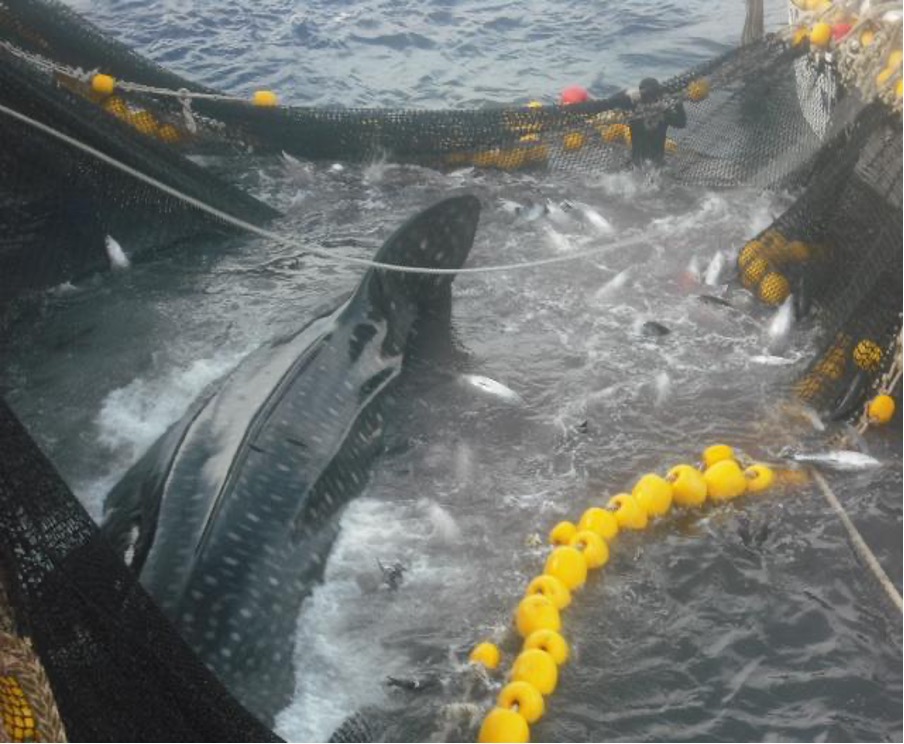
Besides the ecological distress, FADs are also responsible for environmental pollution. Since the cost of recovery of drifting FADs can be too great, companies simply abandon the FADs and let them drift at sea. It is estimated that in some areas, abandoned devices can account for more than half the litter found on beaches (Hong et al. 2014). The problem is so evident that some satellite companies support fishing vessels to recover the old buoys and recycle them (see for example the recent Pacific Community initiative). The loss of FADs results in sea-birds using plastic litter for nests, barriers of FAD netting stopping turtle hatchlings attempting to reach the ocean, and nylon nets and plastic drifting for up to a year before breaking up. And when it does break up, the nets degrade into micro-plastics, perpetuating a vicious circle of environmental pollution which harms the oceans, the local communities, and the marine and avian food-chains.
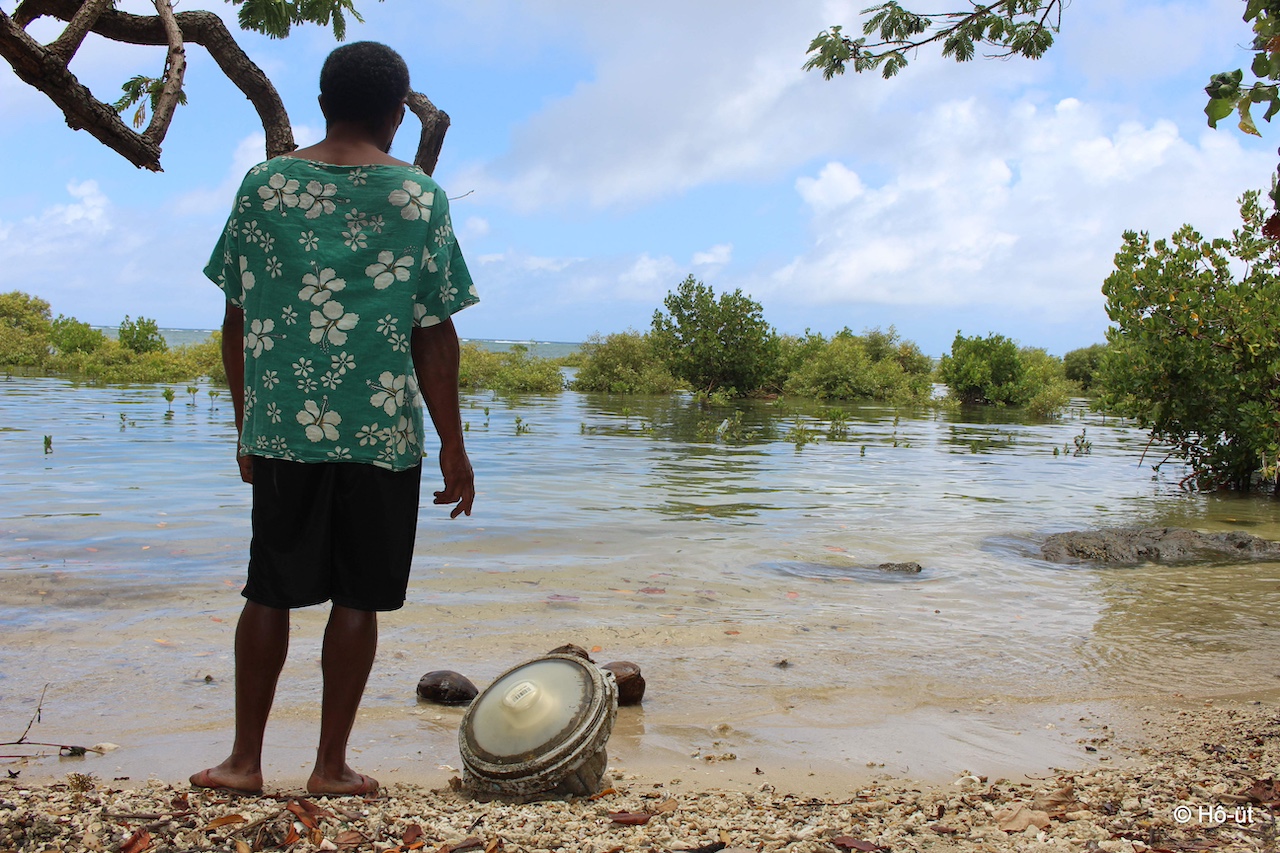
Space industry’s indirect contribution to environmental damage
What has Space got to do with it? Space is the enabler of the technology that allows FADs to be so efficient. Satellite-based communication technology like Iridium’s Short-burst data (SBD) devices provide an efficient, real-time, two-way GPS-based tracking that allows the fishing vessels to track the FADs and find the nets. “By putting a satellite tracker on the FAD they can set it adrift for months at a time” says Hofford. As Iridium’s website states, “a mesh of 66 active Low-Earth Orbit, Iridium satellites blankets the Earth”, providing reliable GPS coverage virtually anywhere. In their petition, the environmental organizations “strongly encourage Iridium to remove [SBDs] from your very wide portfolio of satellite services”. Part of Iridium’s answer was “Our satellite modules are sold to companies who use them in ways we aren’t aware of and don’t directly control. We can’t control how they use our network any more than cellphone companies could be asked to keep their phones out of the hands of bad people”. Iridium added “All kinds of technology companies create the various kinds of buoys used in the ocean – scientific research buoys, tsunami warning buoys, search and rescue buoys and others, but in no case does Iridium have a direct relationship with the end application, its data, or sell a product directly to end users like fishing fleets.”
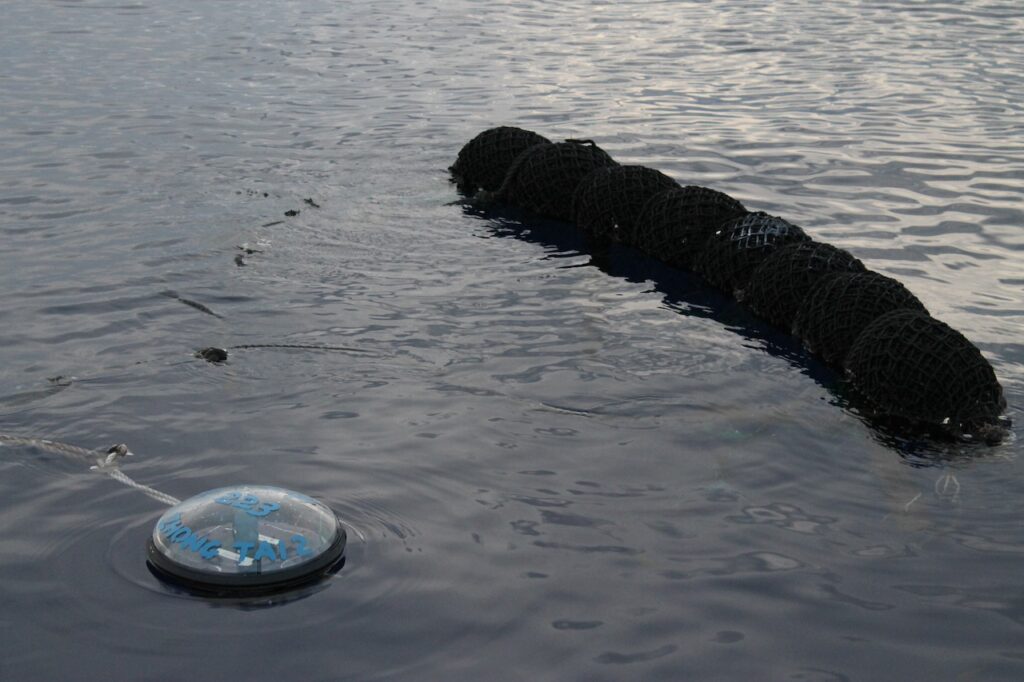
GREENPEACE / ALEX HOFFORD
This is a complex case. Iridium is a wholesale satellite network operator with hundreds of partner companies around the world that integrate their modules into products and sell network access as a service. Each of these partners then have partners of their own, who will buy modules or finished products from them, and in turn will purchase airtime from them for their own customers, and so on. In this daisy-chain of buy-and-sell, the responsibility is inevitably diluted. For their own admission, Iridium does not have a direct relationship with the end application. However, everything in life, from cocaine to gasoline, from sex to tobacco leafs, is judged on the basis of how it is used at the very end, not how it is supposed to be in a theoretical framework.
Iridium answer’s is discordant with the image that Iridium wants to paint of itself. In their Environmental Sustainability Policy Statement (downloadable here) the company declares (page 1) that “Environmental sustainability at Iridium means conducting our business in a manner that acknowledges, measures, and takes responsibility for our direct and indirect impacts on the environment.” And again, “Ensure that our products, services and operations are safe for our employees, customers and the environment”. How exactly can you take responsibility, if you don’t know how third parties are going to use them?
Do we really want to sit on the same bench alongside the tobacco or oil industries?
The key here is the concept of direct vs. indirect impact. Nobody is accusing Iridium of having an active role in generating environmental distress, albeit it could be argued that SBDs, and the printed circuit board it sits upon, contain electronic components that should not be thrown into the ocean. Nevertheless, the concept that builders of industrial services are not involved in or responsible for how such services are used is reminiscent of old mistakes made in the 18th century, when concepts such as “limited resources” and “climate change” were not on the agenda. It’s like saying that oil companies are not responsible for climate change or air pollution, because the oil itself is not harmful, it’s only when you put it in your car that the problems arise. And certainly, the oil producers cannot control how many cars are sold and how people use them, right? Or to put it in a more Iridium-like way, in no case does an oil producer have a direct relationship with the end application, its data, or sell a product directly to end users like car buyers.
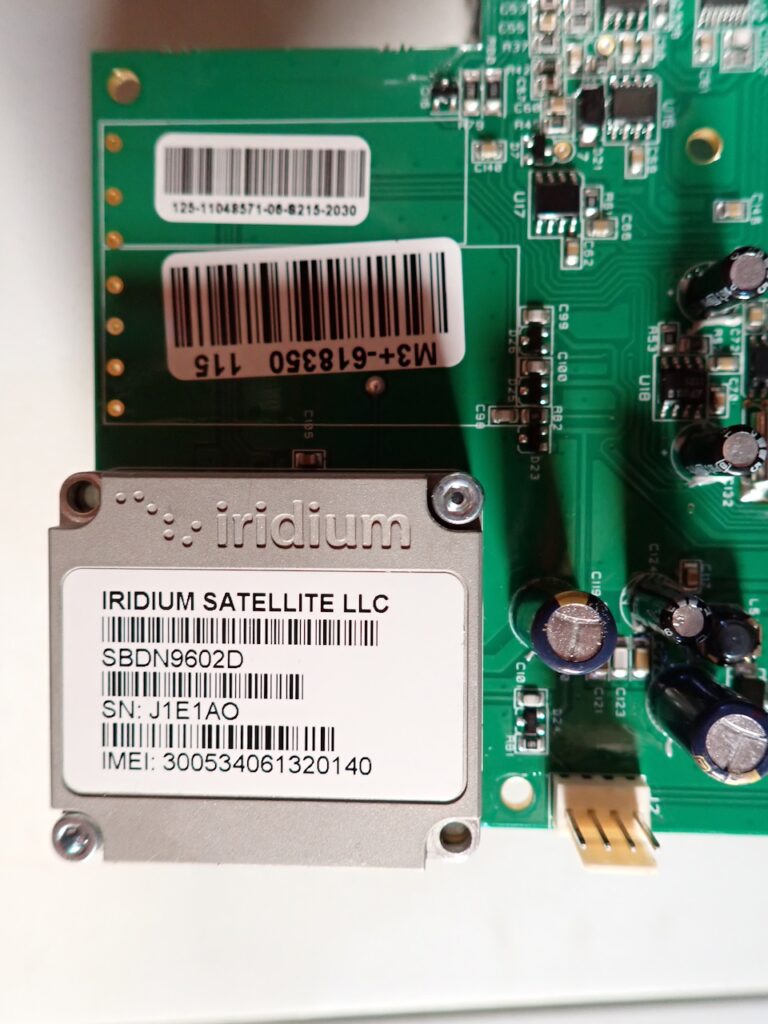
Iridium does not perceive a conflict between its official Environmental Sustainability Policy Statement and the criticisms moved in the petition. Iridium suggests that the very presence of satellite buoys allows FADs to be safer. “The criticisms [moved by the NGOs] omit significant context, particularly that the addition of satellite technology to FADs, which have been around for decades, actually increased transparency, accountability and – for really the first time ever – gave international regulatory authorities – Regional Fisheries Management Organizations (RFMO’s) – the ability to monitor – daily – what is happening, whereas before they had near-zero, if any, visibility due to FADs using other systems (such as VHF). The RFMOs receive the position and the biomass under the FAD for all the buoys transmitting. They have all the traceability to manage the buoys purchase and the number of buoys transmitting at the same time on the water. The frequency of the position and biomass reporting (daily, etc) is based on requirements created and regulated by each RFMO based on what they believe the needs are for their regions. This has made that particular application one of, if not the most highly regulated in all of fishing.”
What does the law say
The law seems to have a different opinion when it comes to satellite service accountability. Gomez at al. (2020) summarized the legal framework surrounding FADs. FADs are “fishing” as defined by international agreements. Specifically, Article 1 of the Agreement on Port State Measures to Prevent, Deter and Eliminate Illegal, Unreported and Unregulated Fishing (PSMA) defines “fishing” as “searching for, attracting, locating, catching, taking or harvesting fish or any activity which can reasonably be expected to result in the attracting, locating, catching, taking or harvesting of fish.” The PSMA adopts the definition provided by the Food and Agriculture Organization (FAO) International Plan of Action to Prevent, Deter and Eliminate Illegal, Unreported and Unregulated Fishing (IPOA), which specifies three broad categories of illegal fishing, each of which can apply to FAD fishing. In particular, the PSMA’s third definition of illegal fishing applies to activities that violate “national laws or international obligations”. Notably, this third definition is not tied to a vessel or “vessel conduct.” Because this definition is not tied to vessels activities, it also applies to non-vessel actors, such as satellite buoy tracking service providers, whose activities tracking FAD locations and communicating such information to fishing vessels constitute “fishing activities” that become “illegal” when the activity contravenes national laws or international agreements and obligations. Management authorities are beginning to explicitly prescribe requirements that Service Providers must follow (Parties to the Nauru Agreement 2020).
It is puzzling that it’s the NAURU Agreement (that is, an Oceanian committee made by the Federated States of Micronesia, Kiribati, the Marshall Islands, Nauru, Palau, Papua New Guinea, Solomon Islands and Tuvalu) tackling such a serious and global matter rather than official Space institutions. The United Nations Office for Outer Space Activities, UNOOSA, is a strong promoter of Space for Sustainable Developments Goals and the Summit for the Future, but it seems to be not yet involved in these type of cross-examination which place the regulation of the environmentally-damaging use of Space tools at their center. When asked to comment on the matter, UNOOSA released the following statement “Many technologies can be used for harmful/illegal purposes despite their not being created for such uses. The perpetrators of those harmful/illegal acts should be held accountable & not the providers of the technology. The same technologies can be used for extremely beneficial purposes, which is all the more reason to hold the perpetrators of the harmful/illegal acts responsible rather than the technology providers. Recognising this, striking the right balance between regulation, corporate social responsibility and an enabling economic environment is vital”.
It is not acceptable in 2024, in a world driven by technology, that tech companies of any sort do not take responsibility for their devices and how they are used or abused.
UNOOSA and Iridium follow the same corporate-driven reasoning path: perpetrators and providers are two different things, because the same technology can be used for good or bad. This might be a reason for not abolishing a technology, but it is not a good enough reason for not regulating it. It is true that satellite network operators and satellite tracking services cannot know who their services are sold to. It is also very convenient that it stays that way. This is at the heart of any daisy chain in the financial world. In the context of corporate finance for example, in a daisy chain each intermediary or entity involved forms a link in a chain, passing on information, funds, or contracts to the next party in the sequence. This interdependent arrangement can complicate transparency, and in order to mitigate the risks associated with daisy chains, regulatory bodies and financial institutions have implemented various measures. For instance, regulations such as the Know Your Customer (KYC) framework requires financial institutions to carry out due diligence processes to identify the parties involved in a transaction and monitor potential risks. Maybe now is the time to think about the issue of Space technologies involved in environmental abuse, and how to classify and control this phenomenon in a similar fashion?
The new tobacco industry?
If we know that a device, working only with our technological knowledge, has solid scientific proof which shows it to be environmentally damaging, should we really not be involved in the dialogue to increase regulation and limit such devices? Should we dismiss the problem with a one-page letter where we state that the issue is not our concern, because we are just the network operator? Because if that’s the case, I would like to see more “We are only modest network operators” slogans at the next Paris Satellite Business Week. That would have the double benefit of being more realistic, and cutting the corporate pitches in half.
We claim to be the new instruments to empower humanity, to inspire generations, to help the world to encompass its climate issues and become a better version of itself. However, it seems that the commercial space sector is following in the footsteps of any other profit-driven, exploitation-based business. History is full of clashes between science and industry, studies where science demonstrated a technology or a device was bad, but industry pushed it as much as it could in the name of profit. Do we really want to sit on the same bench alongside the tobacco and oil industries? If we do, that’s an understandable profit-driven position, but it negates our participation in any parade or crusade that sees us as good actors in the climate or environmental fights. It negates any inspirational message we want to transmit to the new generation, and any far-fetching vision. It opens the doors to the perfect definition of green washing.
This is not a call to ask Iridium to stop producing SBDs, nor is it implying that Iridium itself, or its GPS-tracking devices, are the central issue. And it is important to point out that Iridium has been very collaborative so far in terms of communication with the organizations signing the petition. However, it is a call to Iridium, and any other private Space company, along with international Space bodies to take action as to how Space technology is applied and regulated when it comes to environmental applications. Certain types of services if used in tools that can harm humans, animals or the environment need to be regulated, controlled and possibly limited. It is not acceptable in 2024, in a world driven by technology, that tech companies of any sort do not take responsibility for their devices and how they are used or abused. Space, with the enormous technological powers it carries, should not sugar-coat the implications its services can have, pretending that they are only good. Any space technology is implicitly dual use. It can be used for good, or it can be used for harm. The fact that we are refusing to trace a line between the two, or we are pretending to not see the line, is just an expression of the dichotomy of an industry grown too fast and split between mindful profit and sheer, old-school exploitation.
Do we have a choice? Of course, we do. We could choose to be the new, mature face of how to conduct an ethically driven, environmentally sustainable business that does not harm our planet. Iridium will officially meet with the signatories of the petition on the 1st of March to discuss the matter in depth. Let’s hope something constructive will come out of it.
Selected bibliography of FADs
Megan Bailey and U. Rashid Sumaila (2010) – ‘The Cost of Juvenile Fishing: FADs Management in the Western and Central Pacific Ocean Tuna Fishery’ (unpublished draft)

Dr. Emma Gatti is a Cambridge graduated and former NASA scientist with ten years of experience in the field of planetary science and geology. She was working as a post-doctoral scholar at NASA Jet Propulsion Laboratory and California Institute of Technology before returning to Milan in 2018 to start working as space analysts in the field of Space Economy and Space Policy. Since 2022 she is the Editor in Chief and radio host of SpaceWatch.Global. She has penned several articles focused on Space sustainability and Space communication issues. She is the host of Nobody Cares About Your Satellite, a newsletter about space and tech communication and marketing.





